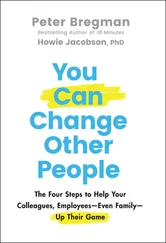But when the planets in disorder wander . . Who said that? Esme knew a crossword clue when she saw one. Disorder wander — prince among men, 6 letters .
Then she remembered the rest from sixth-form literature. But when the planets in evil mixture to disorder wander, what plagues and what portents . . what commotion in the winds . .
By these lights her parents had a successful marriage. They hadn’t wandered in disorder. They might not have known a moment’s happiness together, but at least the winds had stayed quiet.
Now apply this, she reasons, to that commotion whose abiding after-effects had been her study. A raging wind had been loosed, bearing plagues and portents, proof that the planets had wandered badly off their course. Some equipoise of hatred had been lost. You don’t kill the thing you love, but you don’t kill the thing you hate, either. You dance with the thing you hate to the music of the spheres. And all remains well — relatively speaking; of course relatively speaking, relative to massacre and annihilation — so long as the dance continues. The madness is to think you can dance alone, without a partner in mistrust. Had her mother left her father as she had so often threatened to, what would have become of either of them? She couldn’t imagine her mother without her father, so intrinsic to her character was her contempt for him. She existed to denounce him. But he, oh she could imagine him on the streets wielding a machete. WHAT HAPPENED happened, no ifs or buts about it, not because ten thousand men like her father had been abandoned by their wives — though that must have added to the savour of it for some — IT HAPPENED because they forgot, or more likely never fully understood, that those they were killing performed the same function as their wives. It was a catastrophe of literal-mindedness. You don’t kill the thing you hate just because you hate it.
As for why the hatred, Esme Nussbaum is not concerned to put her mind to that. Not now. Perhaps later when she has more strength. Should she slip back into a coma, she thinks, she’ll have the mental space for it.
She is just strong enough, however, to see this one thought through to the end: an essential ingredient of the harmony of disharmony was lost when men like her father went on the rampage. And now, still, all these decades later, they wander in uncomplemented disorder.
She is no longer employed by Ofnow. When Ofnow kills its employees it assumes them to be off the payroll. Her mother has been trying to get her a pension — an endeavour in which she has not been able to count on the support of her husband who understands Ofnow’s reasoning — but without success. She knows what their response will be if she pushes them too hard. They will prove her daughter is no longer on the payroll by killing her again.
Sometimes Esme forgets that she is no longer employed by Ofnow and finds herself preparing a new report to take into the office on Monday morning. It will argue that if the country is to enjoy any sort of harmony again, there must be restitution. Not a crude financial recompense to the descendants of those who vanished in the course of WHAT HAPPENED (there can be no talk of victims) — their whereabouts anyway, supposing some exist, are unknown. What she has in mind is making restitution to the descendants, or rather the idea of the descendants, of those who remained (there can of course be no talk of culprits either). Us , in other words, the living descendants of the living. Restitution in this sense: Giving us all back what we have lost .
There will be considerable relief in the office that she is not proposing financial recompense no matter that it cannot possibly be implemented. Blood money presupposes an offence and, since there hasn’t been one, blood money isn’t on the table. But they won’t know what in God’s name she means by giving us back what we have lost. What have we lost ? Explain yourself, Miss Nussbaum. And she will. Gladly.
‘What we have lost,’ she will tell them, ‘is the experience of a deep antagonism. Not a casual, take-it-or-leave-it, family or neighbourly antagonism — but something altogether less accidental and arbitrary than that. A shapely, long-ingested, cultural antagonism, in which everything, from who we worship to what we eat, is accounted for and made clear. We are who we are because we are not them .’
They stare at her.
‘Remove them from the picture and who are we?’
They are still staring at her.
‘We must give the people back their necessary opposite,’ she will tell them, heated by her own fierceness, the splintered bones in her body a thousand weapons to slay with.
‘And how do you propose doing that, young lady?’ someone dares to ask.
Ah, she will say. Now you’re asking.
iii
At the very moment Esme Nussbaum was knocked down outside her place of work, her mother fell off a chair on which she’d been standing to dust the bookshelves. Mothers and daughters, especially when no man beloved of either is around to break the current, can be attuned like this.
In the time her daughter was in hospital Rhoda Nussbaum never gave up hope of her coming out of her coma because she could hear her thinking live thoughts. And now that Esme was home, back in the room that had been her nursery, back in her care, her mother heard even more of what was going on inside her head. Planets, marriages, collisions, commotion — she heard all that. Some of her daughter’s thoughts and phrases she even recognised as her own. How could it be otherwise? If she was attuned to Esme, then Esme was attuned to her. Even in the womb the baby hears its mother’s music. And as an essentially companionless woman, with a rich store of anger in her, Rhoda had confided in her daughter, sometimes in words, sometimes silently, earlier and more frequently than was common or even desirable. Necessary Opposites, for example, was the name of a two-girl, two-boy rock band Rhoda had danced to when she was a teenager. She was pretty certain the band vanished at about the time most hard-rock bands were consensually driven underground, and that would have been a few years before Esme was born. How extraordinary that a phrase that had been lying there in pieces in Rhoda Nussbaum’s mind, unused and unreferred to, should suddenly reassemble itself in Esme’s. But then again, maybe not. Rhoda had tried to dance her brains out to Necessary Opposites because she didn’t like what her brains contained. Was it coincidence? The evil thing she wanted to dance out was all trace of a man in pain — or pretending to be in pain — declaring over and over I am who I am because I am not them as though it were an incantation, and begging her to kiss him, forgive him, enfold him, make him better. As though he had a better self she could release.
Hearing the words returned to her in Esme’s thoughts did not bring back a long-forgotten event because she had never forgotten it — where she was when she heard them, how they made her feel, the feebleness of her response. .
i
A BLOOMING, STRONG-JAWED girl of just sixteen, still to meet the husband she can’t bear, Rhoda Nussbaum (to be) had a brief affair with a man more than three times her age. Though she called it an affair, there was not much sex in it. Nor much love. It was an affair of curiosity. She was inexperienced, but with a fierce sense of the ridiculous that made her courageous, and he was her schoolteacher. An unattractive man physically, but you don’t say no to your teacher. Especially when he wants you to know he’s emotionally damaged and you might just be the one to heal him.
Читать дальше












